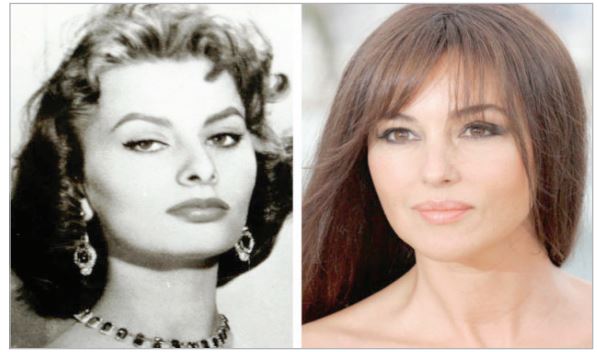Bellucci, A Different Kind of Diva
TORONTO – After having opened the 81st Venice Film Festival to a standing ovation, Beetlejuice Beetlejuice is bringing a little bit of the 80s back to cinema. But even Tim Burton’s sequel to the 1988 dark comedy brings something unexpected, and it’s in the form of Italy’s most unique “Diva” – mangled as she is in the role.
True to form the Umbria-native Monica Bellucci, aged 60 this month, has turned up where filmgoers have least expected. Starring as Beetlejuice’s soul-sucking wife, Bellucci plays a tormented ghoul seeking vengeance on Beetlejuice for having dismembered her – in self-defence of course. While alive, their romance was cut short, pun intended, after her attempts to devour his soul. But in Burton’s Underworld there’s no rest for the wicked and Beetlejuice, reprised by Michael Keaton, can’t escape the wrath of his former bride.
Some might balk at the term “Diva” for its modern day connotation, pointing to female performers with a high degree of talent and [a difficult] temperament. But the origin of the term is Italian and an opera reference derived from the Latin word “divus”, meaning divine. A leading female opera singer or the “Prima Donna” was the original Diva, praised for her exceptional vocal range and dramatic presence. The Diva aura was then transposed onto the big screen, through silent era movie stars like Lyda Borelli, Francesca Bertini and Pina Menichelli. And eventually to the golden age film icons Sophia Loren, Gina Lollobrigida and Monica Vitti – to name a few.
The drop off since then has been significant. Not in talent, but in the way an Italian actress could fill a screen with as much charismatic pomp and aura as she could talent. The way Virna Lisi did in How to Murder Your Wife (1965) as she careened through a black tie party in the Upper West Side, taunting male guests with a seductive hair-flipping dance. Or how Claudia Cardinale’s glossy eyed goodbye said more with a look than a thousand words combined – in Once Upon a Time in the West (1968).
That era was a distant memory until Francis Ford Coppola cast Monica Bellucci, a young model-turned-actress in Bram Stoker’s Dracula (1992). The Italian starlet catapulted herself into stardom thereafter earning a Cesar nomination for her performance in The Apartment (1996), which turned Studio heads in America.
Bellucci however, was a different kind of Diva, adopting a Johnny Depp style approach to choosing films, reluctant to exploit her looks for projects lacking substance. Bellucci in 2012: “As Oscar Wilde said, beauty is just five minutes long if you don’t have anything else to sustain that curiosity. I don’t think I would’ve made this type of career if I were just beautiful”. That was Monica Bellucci reflecting on a career of wide ranging roles which included playing Mary Magdalene in The Passion of the Christ, a brutalized rape victim in Gaspar Noe’s Irreversible, a war widow in Tornatore’s Malena and as Persephone, a shrewd resistance aid for Neo in Matrix Reloaded. While Bellucci may not have captured audiences in quite the same manner as Loren, Beetlejuice Beetlejuice is just another example of how Bellucci did it her way, while continuing to carry the mantle of Italian Diva into the 21st century – alongside a still working Loren.
Beetlejuice Beetlejuice is in theatres now
Bellucci/Beetlejuice Photo courtesy of Warner Bros
Massimo Volpe is a filmmaker and freelance writer from Toronto: he writes reviews of Italian films/content on Netflix





